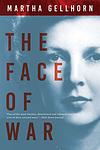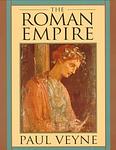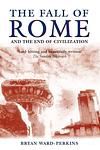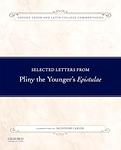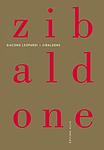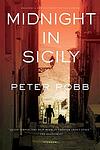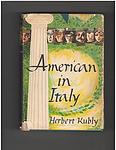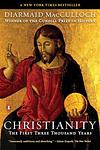The Greatest "Italy " Books of All Time
Click to learn how this list is calculated.
This list represents a comprehensive and trusted collection of the greatest books. Developed through a specialized algorithm, it brings together 305 'best of' book lists to form a definitive guide to the world's most acclaimed books. For those interested in how these books are chosen, additional details can be found on the rankings page.
Genres
The "Italy" category in books encompasses a diverse range of works that are either set in Italy, delve into aspects of Italian culture, history, and society, or are written by Italian authors. This genre offers readers a vivid exploration of Italy's rich heritage, from its ancient ruins and Renaissance art to its modern-day allure and societal dynamics. It includes a variety of literary forms such as fiction, non-fiction, travelogues, historical accounts, and culinary guides. Through narratives that might explore the romantic landscapes of Tuscany, the bustling streets of Rome, or the intricate politics of Venice, books in the "Italy" category provide a deep understanding and appreciation of one of the world's most culturally influential countries, appealing to both the hearts and minds of those fascinated by or connected to Italy.
Countries
Date Range
Reading Statistics
Click the button below to see how many of these books you've read!
Download
If you're interested in downloading this list as a CSV file for use in a spreadsheet application, you can easily do so by clicking the button below. Please note that to ensure a manageable file size and faster download, the CSV will include details for only the first 500 books.
Download-
1. The Face Of War by Martha Gellhorn
"The Face of War" is a compelling collection of war correspondence by one of the 20th century's most famous war reporters. The book gathers firsthand reports from various major conflicts, including the Spanish Civil War, World War II, the Vietnam War, and the wars in Central America. Through vivid, unflinching prose, the author captures the human cost of war, focusing on the impact on soldiers and civilians alike. Her reports not only highlight the horrors and brutality of conflict but also the resilience and courage of the people she encounters. This collection serves as a poignant reminder of the personal stories behind the abstract facts of war.
The 2377th Greatest Book of All Time -
2. The Innocents Abroad by Mark Twain
"The Innocents Abroad" is a humorous travelogue that chronicles the adventures of a group of American travelers aboard a chartered vessel embarking on a grand voyage to Europe and the Holy Land. Through the eyes of the narrator, the book offers a satirical and insightful critique of both the pretensions of the American tourists and the quirks and customs of the people they encounter. With sharp wit and a keen eye for irony, the narrative delves into the clash of cultures and the comical misadventures that ensue as the group navigates through ancient historical sites and European society.
The 3279th Greatest Book of All Time -
3. Treatises On Friendship And Old Age by Marcus Tullius Cicero
The book comprises two philosophical essays that delve into the nature and significance of friendship and the challenges and wisdom of old age. The first essay explores the meaning of true friendship, its role in society, and its importance as a foundation for moral and happy life, emphasizing mutual respect, virtue, and genuine affection. The second essay addresses the concerns of aging, arguing against the common perceptions of old age as a miserable phase. Instead, it presents old age as a period capable of great mental and intellectual activity and satisfaction, provided one has lived a life based on virtue and fulfillment. Through these essays, the text provides timeless insights into handling some of life's most profound transitions with grace and wisdom.
The 3791st Greatest Book of All Time -
4. On Obligations by Marcus Tullius Cicero
"On Obligations" is a philosophical treatise that explores the ethical and moral duties of individuals in society. Written in the form of a dialogue, the text delves into the nature of justice, the importance of the common good, and the role of virtue in personal and public life. The author articulates a framework for understanding and fulfilling one's obligations, which he argues are derived from both natural law and human reason. Through a detailed examination of various ethical dilemmas and practical situations, the work provides insights into how individuals should act with integrity and wisdom to uphold both legal and moral responsibilities.
The 3791st Greatest Book of All Time -
5. The Social History Of Art by Arnold Hauser
"The Social History of Art" is a comprehensive analysis that explores the intricate relationship between art and its social contexts throughout different historical periods. This work delves into how social, economic, and cultural conditions have influenced artistic expression from prehistoric times to the modern era. The author examines various art forms including painting, sculpture, and architecture, and discusses the roles of class, ideology, and the artists' social standings in shaping the art of their times. This book provides a critical perspective on the evolution of art, emphasizing the socio-economic forces that drive artistic innovation and aesthetic changes.
The 5517th Greatest Book of All Time -
6. The Roman Empire by Paul Veyne
"The Roman Empire" delves into the intricate and expansive history of Rome, exploring its political, social, and cultural dynamics. The book provides a detailed examination of how Rome evolved from a small city-state to a vast empire, influencing the Western world profoundly. The author analyzes the mechanisms of power and governance within the empire, the role of military conquests and political alliances, and the complex interactions between Roman and other cultures. Additionally, the narrative discusses the daily lives of Roman citizens, the economic frameworks, and the philosophical and artistic contributions that shaped the legacy of the Roman Empire.
The 5662nd Greatest Book of All Time -
7. The Apostolic Fathers by William Wake, Edward Burton
"The Apostolic Fathers" is a compilation and analysis of early Christian writings that are attributed to the leaders directly following the Apostles, known as the Apostolic Fathers. This collection includes important texts such as the letters of Clement, the teachings of Polycarp, and the Shepherd of Hermas, among others. These writings provide valuable insights into the beliefs, practices, and organizational structures of early Christian communities. The book not only presents these texts but also offers commentary and historical context provided by the editors, helping to bridge the gap between the time of the Apostles and the later Christian church.
The 6745th Greatest Book of All Time -
8. The Fall Of Rome by Bryan Ward-Perkins
"The Fall of Rome" presents a compelling argument that the decline of the Roman Empire was both a rapid and devastating event, challenging the notion of a gentle transformation. The author uses archaeological evidence and material culture, such as pottery shards and coinage, to illustrate a significant decrease in economic vitality and urban life following the fall of Rome. This decline led to dramatic reductions in general living standards and the loss of sophisticated crafting and building techniques. The book effectively counters the idea of a seamless transition to the early Middle Ages, instead portraying a period marked by turmoil and hardship.
The 7129th Greatest Book of All Time -
9. Epistulae by Pliny the Younger
"Epistulae" is a collection of personal correspondence written by a prominent lawyer and author from ancient Rome. These letters provide a detailed insight into the social, political, and domestic aspects of Roman life during the late first and early second centuries. The author writes about a wide range of topics, from descriptions of daily routines and domestic affairs to significant events of the time, including the eruption of Mount Vesuvius. The letters are valued not only for their literary elegance but also for their detailed historical accounts and personal reflections, offering a unique glimpse into the author's character and the times in which he lived.
The 8726th Greatest Book of All Time -
10. Zibaldone by Giacomo Leopardi
"Zibaldone" is a collection of personal reflections, thoughts, and philosophical considerations penned by an Italian scholar and poet over a span of 15 years in the early 19th century. The work, which was not intended for publication, comprises a vast array of topics including classical antiquity, language, literature, history, anthropology, astronomy, and philosophy. It serves as a critical exploration of the human condition, blending deep pessimism with insightful observations on society and the nature of human knowledge. The author's erudition and the breadth of his interests make this compilation a rich, albeit complex, tapestry that provides valuable insights into the intellectual currents of his time.
The 8726th Greatest Book of All Time -
11. Garibaldi And The Thousand, May 1860 by George Macaulay Trevelyan
The book provides a historical account of Giuseppe Garibaldi's daring expedition with his legendary "Thousand" volunteers in May 1860, which played a crucial role in the unification of Italy. It details their departure from Quarto, their landing in Sicily, and the subsequent military and political maneuvers that led to the significant conquest of Naples. Through vivid narrative and meticulous research, the author captures the essence of this pivotal moment in Italian history, highlighting Garibaldi's leadership, strategy, and the fervent nationalist spirit that drove his small force to achieve monumental success against larger, more equipped armies.
The 8726th Greatest Book of All Time -
12. Memoirs Of Lorenzo Da Ponte by Lorenzo Da Ponte
"Memoirs of Lorenzo Da Ponte" is an autobiographical account of the life of Lorenzo Da Ponte, an Italian poet and librettist best known for his collaboration with Mozart. The memoirs trace his colorful and tumultuous life from his early years in Venice, where he was ordained as a priest, through his banishment from Venice due to his scandalous activities, to his significant contributions to the world of opera in Vienna. The narrative also covers his later years in the United States, where he worked in various capacities, including as a grocer and a professor of Italian literature. Da Ponte's memoirs provide a vivid portrayal of the cultural and social dynamics of Europe and America in the late 18th and early 19th centuries, as well as intimate insights into his personal trials and the artistic milieu of his time.
The 8726th Greatest Book of All Time -
13. The Origins Of European Thought by R. B. Onians
"The Origins of European Thought" explores the intellectual history of ancient Europe, focusing on how the Greeks and Romans conceptualized the mind, soul, and body, and how these ideas were influenced by earlier cultures. The book delves into a variety of sources, including philosophy, linguistics, and mythology, to trace the development of European thought from its prehistoric roots to classical antiquity. It examines the metaphors and linguistic expressions used by these ancient civilizations to discuss psychological and physiological phenomena, revealing a deep connection between language and cultural worldview.
The 8726th Greatest Book of All Time -
14. Umbertina by Helen Barolini
"Umbertina" is a multi-generational saga that explores the lives of Italian-American women across different eras. The novel traces the journey of Umbertina, a young Italian peasant who emigrates to the United States in the late 19th century, and follows her descendants as they navigate the complexities of identity, heritage, and cultural assimilation. Through the intertwining stories of Umbertina and her female descendants, the book delves into themes of family, tradition, and the enduring ties to one's homeland, offering a rich portrait of the immigrant experience and the evolving roles of women through history.
The 9099th Greatest Book of All Time -
15. The Tuscan Year by Elizabeth Romer
"The Tuscan Year" chronicles a year in the life of a rural Tuscan family as they navigate the seasonal rhythms of farming, cooking, and feasting. Through vivid descriptions and intimate storytelling, the book provides a detailed portrayal of traditional Tuscan culinary practices, ingredients, and recipes. The narrative captures the deep connection between the land, the food, and the family traditions, offering readers a rich insight into the simplicity and richness of Italian country living.
The 9341st Greatest Book of All Time -
16. Leo The African by Amin Maalouf
The book chronicles the life of a real historical figure, an Andalusian-born traveler who journeys across the Mediterranean world of the Renaissance. After being forced to leave his beloved Granada following its conquest, he experiences the heights of human knowledge in Fez, gets captured by pirates and becomes a slave in Rome, before finally serving as an envoy across the great capitals of the time. His travels not only expose him to a vast array of cultures and beliefs but also allow him to witness pivotal events in history, all while searching for a place to belong and grappling with his complex identity.
The 9438th Greatest Book of All Time -
17. Antony And Cleopatra by William Shakespeare
"Antony and Cleopatra" is a tragic play that delves into the tumultuous romance between Mark Antony, one of the three rulers of the Roman Empire, and Cleopatra, the seductive queen of Egypt. As Antony becomes increasingly entangled in Cleopatra's allure, he neglects his duties in Rome and faces political and military backlash. The play explores themes of love, power, and betrayal, culminating in both Antony and Cleopatra's tragic downfalls, marked by miscommunication and tragic self-destruction, ultimately highlighting the destructive consequences of their passionate yet volatile love affair.
The 9788th Greatest Book of All Time -
18. Midnight In Sicily by Peter Robb
"Midnight in Sicily" explores the rich and tumultuous history, culture, and politics of Sicily from the 1970s through the 1990s. The narrative delves into the island's deep-rooted Mafia presence, its influence on social and political spheres, and the courageous efforts of those who have stood against its power. Through a blend of travelogue, cultural commentary, and political analysis, the book paints a vivid portrait of Sicilian life and the complex web of corruption, art, history, and delicious cuisine that defines it. The author's personal experiences and observations provide a compelling backdrop to the broader historical and cultural discussions, making the work both an informative and engaging read.
The 9822nd Greatest Book of All Time -
19. American in Italy by Herbert Kubly
"American in Italy" is a vivid travelogue that captures the experiences of an American writer navigating the rich cultural landscape of post-World War II Italy. The author delves into the Italian way of life, exploring its cities, countryside, traditions, and the idiosyncrasies of its people. Through a series of engaging anecdotes and reflections, the book offers insights into the profound beauty and historical complexities of Italy, while also examining the personal transformation that travel can evoke. The narrative is both a personal journey and a broader exploration of a nation recovering and rebuilding, providing a thoughtful perspective on the cultural and historical significance of Italy in the mid-20th century.
The 10138th Greatest Book of All Time -
20. Christianity by Diarmaid MacCulloch
This book provides a comprehensive history of Christianity, tracing its evolution from its beginnings as a Jewish sect to its role as a global religion. The author explores the development of Christian doctrine, the establishment of the institutional church, and the series of reformations and counter-reformations that have shaped its form and practice over two millennia. The narrative also delves into the cultural, political, and social influences that have influenced the religion's spread and transformation, offering insights into the diverse and complex ways Christianity has interacted with different societies around the world.
The 11029th Greatest Book of All Time
Reading Statistics
Click the button below to see how many of these books you've read!
Download
If you're interested in downloading this list as a CSV file for use in a spreadsheet application, you can easily do so by clicking the button below. Please note that to ensure a manageable file size and faster download, the CSV will include details for only the first 500 books.
Download